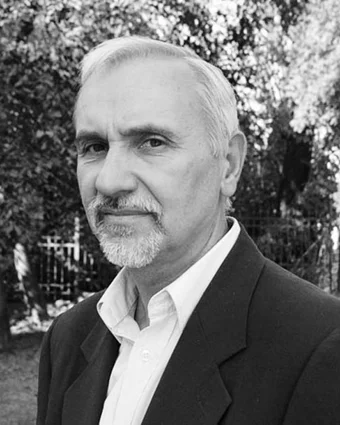Galicians II: The Composers
Nestor Nyzhankivsky (1893 – 1940)
After a few compositions in the style of 19th century Galician Song where the melody in the voice was paramount, Nestor’s primary aim in composing Ukrainian Art Songs became ‘...the synthesis of National and European musical traditions to further develop Ukrainian musical culture...’ He strived to exhault the expressive powers of the piano to create a true marriage of two instruments. Thus, his later songs are much enriched with a dialogue for piano and voice. In the 19th century, the piano was often a mere ‘accompanist’ to much of the art song tradition. Nestor’s style further developed after having emigrated from Ukraine to Vienna in 1920; explosive recitatives, even disputes between piano and voice – an unsettling yet riveting musical experience.
Nestor Nyzhankivsky (1893 – 1940)
Ostap Nyzhankivsky (1863 – 1919)
Ostap, the father of Nestor, was one of the most prominent figures in the musical life of late 19th century Halychyna (Galicia), Western Ukraine. In 1885, he founded the ‘Musical Library’ Publishing House which was instrumental in the publication of many works by Ukraine’s most prominent and promising composers. Ostap helped popularise the piano in Western Ukraine, particularly as a solo instrument, but also as an accompanist to Ukrainian Art Song. He adopted Western European Romanticism in his songs - highly provocative, dramatic, sometimes sharply disturbing settings. He achieved much recognition for his compositions of choral music; of most particularly note: ‘Huljaly’ (‘They Partied) for male voices; a highly dramatic argument ensues causing unrest among friends! For Ostap the word was paramount and thus great music ensued.
Ostap Nyzhankivsky (1863 – 1919)
Jaroslav Lopatynsky (1871 – 1936)
By profession a doctor, Jaroslav composed over 100 art songs. He possessed an exquisite talent to express, in few bars, our deepest felt feelings; humorous in the extreme, reflective, dramatic, and always melodic.
Jaroslav studied medicine in Vienna for 7 years and during this time fully immersed himself in musical Viennese life. Here he composed his first art songs. which remain his greatest contribution to Ukrainian National Music. The onset of the 1st World War precluded Jaroslav from developing his extraordinary talents yet further into the symphonic genre. However, his talents were proclaimed by Ukraine’s most eminent composers, notably Stanyslav Liudkevych and Vasyl Barvinsky.
Jaroslav Lopatynsky (1871 – 1936)
Myroslav Volynsky (1955 -)
A student of composition at Lviv Conservatoire under Anatol’ Kos-Anatol’sky, (a composer of note whose art songs are to be recorded by the Ukrainian Art Song Project), Myroslav has to date composed for all musical genres – operatic, symphonic, oratorio and chamber music. His art songs range from intimate miniatures to grandiose expressions of epic dimensions - a true challenge for piano and voice. Myroslav’s immediate influences range from Richard Wagner, Gustav Mahler to Borys Lyatoshynsky, Richard Strauss and Dmitri Shostakovich. A delight for the performer to perform; a delight for the listener to witness such sophisticated and groundbreaking music...listen out for the lapses into ‘Tango’!!!
Myroslav Volynsky (1955 -)









